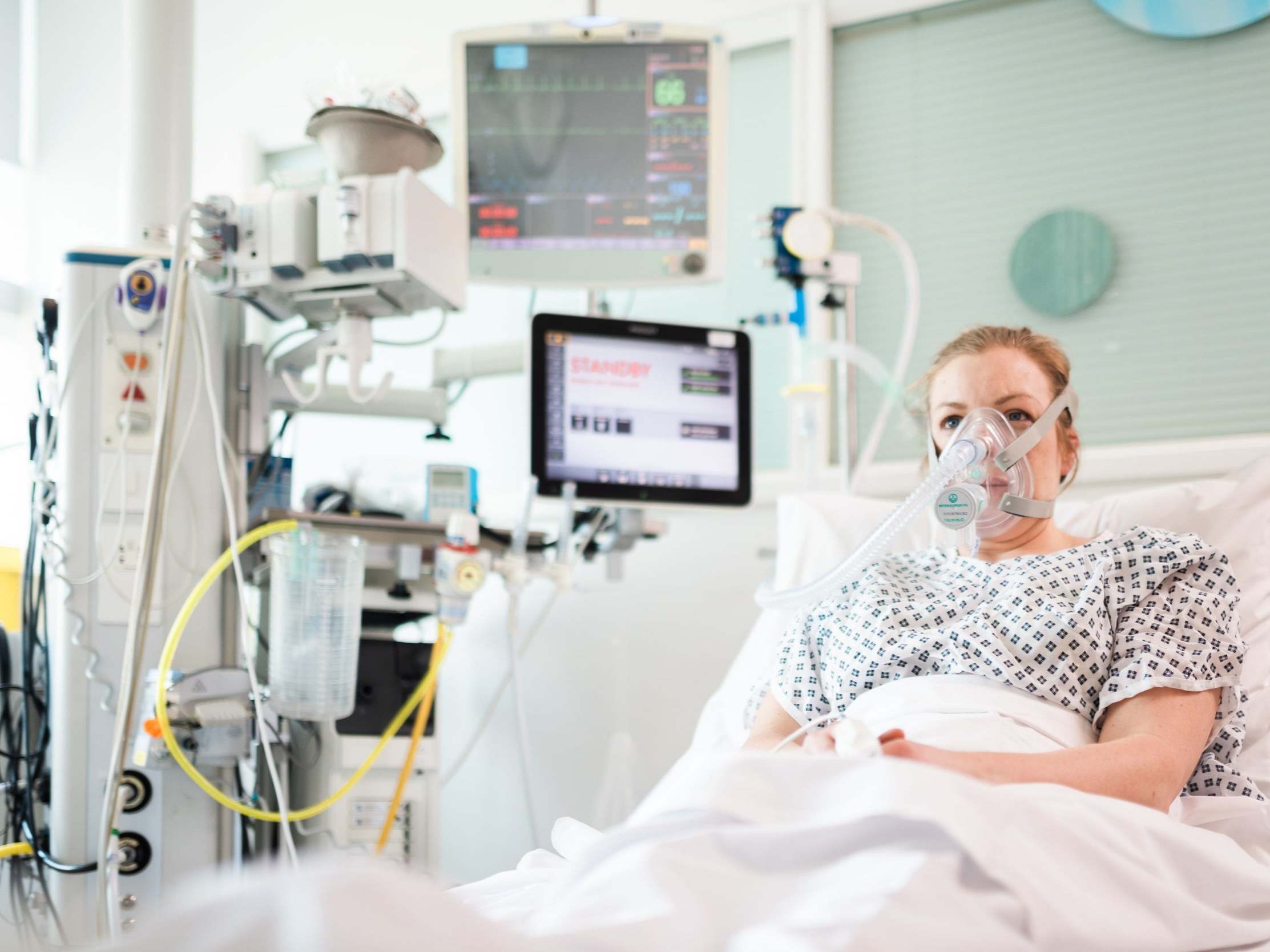High pressure oxygen treatment for Covid patients meant fewer needing to be ventilated
Demand for oxygen use during Covid waves was a serious pressure on hospitals during the pandemic

Your support helps us to tell the story
From reproductive rights to climate change to Big Tech, The Independent is on the ground when the story is developing. Whether it's investigating the financials of Elon Musk's pro-Trump PAC or producing our latest documentary, 'The A Word', which shines a light on the American women fighting for reproductive rights, we know how important it is to parse out the facts from the messaging.
At such a critical moment in US history, we need reporters on the ground. Your donation allows us to keep sending journalists to speak to both sides of the story.
The Independent is trusted by Americans across the entire political spectrum. And unlike many other quality news outlets, we choose not to lock Americans out of our reporting and analysis with paywalls. We believe quality journalism should be available to everyone, paid for by those who can afford it.
Your support makes all the difference.Treating coronavirus patients with pressurised oxygen masks to help them breathe meant fewer patients ended up in intensive care on a ventilator, new research has found.
During the pandemic waves as tens of thousands of Covid-19 patients were admitted to hospital struggling to breathe, doctors used continuous positive airway pressure (CPAP) masks for many patients.
This was used by medics as a way to try and increase the amount of oxygen patients were getting as their virus ravaged lungs struggled. Many Covid-19 patients developed acute respiratory failure.
Now a study funded by the National Institute for Health Research has examined how successful CPAP was compared to standard oxygen therapy and use of high flow oxygen via nasal tubing.
The Respiratory Strategies in Covid-19, CPAP, High-flow, and Standard Care (Recovery-RS) trial, led by the University of Warwick and Queen's University Belfast, is the world's largest non-invasive respiratory support trial for Covid-19 with more than 1,200 participants taking part across 48 UK hospitals.
Between April 2020 and May 2021, a total of 1,272 Covid-19 patients admitted to hospital with acute respiratory failure, aged over the age of 18, were recruited to the study. They were randomly allocated to receive one of the three oxygen treatments.
In the CPAP group, 137 out 377 patients, or 36 per cent, needed to be intubated or died within 30 days. This compared to 44 per cent of patients on normal oxygen therapy with similar result for high flow oxygen patients.
Based on these results, one person would avoid being on a ventilator in intensive care for every 12 patients treated with a CPAP mask.
Danny McAuley, chief investigator and consultant in intensive care medicine at the Royal Victoria Hospital and Queen's University Belfast, said: "The results of this trial are really encouraging as they have shown that by using CPAP, invasive ventilation may not be needed for many patients with Covid-19 requiring high oxygen levels.
"Avoiding invasive ventilation is not only better for the patients, but it also has important resource implications as it frees up ICU capacity.
"This research should help healthcare professionals in the UK and beyond manage patients with Covid-19, to improve patient outcomes while helping to lessen the burden on resources."
The research has not yet been peer reviewed but researchers say it provides a basis for reconsidering the use of high flow oxygen as it showed little benefit.
Gavin Perkins, professor in critical care medicine at Warwick Medical School at the University of Warwick, said: "The routine use of high-flow nasal oxygenation, which can consume large amounts of oxygen, should be reconsidered as it did not improve outcomes.
"By giving patients the most effective treatment to begin with, we can help prevent resource shortages in our NHS and make sure the right type of ventilation is available to patients when it is required.
He added: "What this trial does, for the first time, is provide an evidence base that can give patients, their families and clinicians, the confidence to step from controlled oxygen therapy to CPAP, knowing that for one in 12 people that that therapy is provided will escape the need for invasive ventilation."
Join our commenting forum
Join thought-provoking conversations, follow other Independent readers and see their replies
Comments